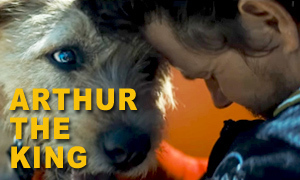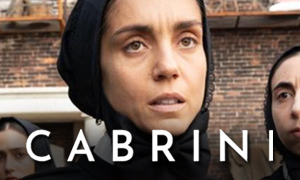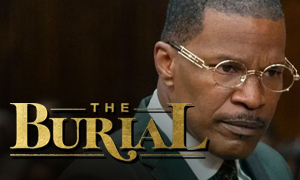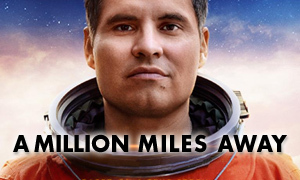Worth: History vs. Hollywood
Michael Keaton
Born: September 5, 1951
Birthplace:
Coraopolis, Pennsylvania, USA
Ken Feinberg
Born: October 23, 1945
Birthplace: Brockton, Massachusetts, USA
Bio: Attorney and Special Master of 9/11 Victim Compensation Fund
Stanley Tucci
Born: November 11, 1960
Birthplace:
Peekskill, New York, USA
Charles Wolf
Born: abt 1954
Bio: Widower of 9/11 Victim Katherine Wolf
Amy Ryan
Born: May 3, 1968
Birthplace:
Queens, New York City, New York, USA
Camille Biros
Bio: Deputy Special Master of 9/11 Victim Compensation Fund
Talia Balsam
Born: March 5, 1959
Birthplace:
New York City, New York, USA
Diane "Dede" Feinberg
Born: January 1949
Bio: Ken Feinberg's Wife
Where were Charles Wolf and Ken Feinberg when the planes hit the World Trade Center on 9/11?
As indicated in the Netflix Worth movie, the true story confirms that Charles Wolf (Stanley Tucci in the film), then 65, was at home in his downtown Manhattan apartment. "I knew in that fraction of a second it was a twin-engine jet going full-throttle. I ran out onto the balcony which faced north – and it was dead silent," he told Fox News. "I stepped back through the sliding glass door, and all I heard was 'Ka-boom!' Then someone on the street said, 'Oh my God, a plane has gone into the World Trade Center,' and I yelled back, 'Are you kidding me? My wife works there!'"
As for attorney Ken Feinberg (played by Michael Keaton), he was teaching a class at the University of Pennsylvania around the time that the first plane hit the World Trade Center. He viewed the aftermath on a TV in a common area. He then boarded a train from Philadelphia to Wilmington, and passengers with handheld radios relayed the news of the South Tower and the Pentagon. Unlike what's seen in the Netflix movie, Feinberg was nowhere near the Pentagon and could not see smoke billowing from the structure from his train window.
What floor of the World Trade Center did Charles Wolf's wife work on?
Katherine Wolf worked on the 97th floor of the North Tower of the World Trade Center. It is believed that no one above the 91st floor survived. The plane struck the North Tower at floors 94-98. In researching the Worth true story, we learned that in a cruel twist of fate, it had been just a few days earlier that Katherine's boss had asked her to start at 8:30 a.m. instead of 9:00 a.m. (the first plane hit the North Tower at 8:46 a.m.). If her start time hadn't changed, Katherine almost certainly would be alive. In the movie, she works for the fictional law firm Kyle and MacAllen. In real life, she was an executive assistant at the professional services firm Marsh & McLennan. -Fox News
Who was the September 11th Victim Compensation Fund (VCF) created to support?
As stated on the official U.S. government website for the fund, "The September 11th Victim Compensation Fund ("VCF") was created to provide compensation for any individual (or a personal representative of a deceased individual) who suffered physical harm or was killed as a result of the terrorist-related aircraft crashes of September 11, 2001 or the debris removal efforts that took place in the immediate aftermath of those crashes." Washington attorney Ken Feinberg was appointed to be the Special Master of the fund.
The fund had to be continually extended and revised in large part due to first responders developing cancer and respiratory diseases from having breathed in toxins in and around Ground Zero in Manhattan, including carcinogenic materials like asbestos, as well as dioxins. -Fox News
Was Attorney Ken Feinberg paid to manage the September 11th Victim Compensation Fund?
No. Like in the movie, Ken Feinberg chose to take no payment for managing the fund. He worked on it for 33 months pro bono. One difference between the movie and real life is that Feinberg wasn't asked to manage the 9/11 victims fund. Instead, he lobbied for the role. It is true that he had extensive experience working on such cases.
How did Ken Feinberg calculate the amount each family would receive from the 9/11 Victim Compensation Fund?
Like in the movie, Washington lawyer Ken Feinberg, who had been appointed Special Master of the 9/11 Victim Compensation Fund, had to try to answer the question, "What is a life worth?" He had to figure out what to pay each 9/11 family by estimating how much money each victim would have made in a full lifetime. Victims and families were also compensated for pain and suffering, in addition to other monetary damages. Once a family accepted Feinberg's offer, they were not allowed to appeal.
Many families were upset at the concept of putting dollar values on the lives of loved ones. After all, as asked by the movie, "How do you put a value on lives lost?" Complicating matters more was the fact that many of the victims were wealthy financial professionals, and their families felt that they were being under-compensated. Others argued that all human lives should be valued equally, as opposed to trying to project what each victim would have earned in their lifetime. Attorney Ken Feinberg discusses his compensation strategy and its challenges in his book What is Life Worth?, which inspired the Michael Keaton movie. -ABC News
Were 9/11 families and victims not allowed to sue the airlines if they chose to participate in the 9/11 Victims Fund?
Yes. Like in the film, the Worth movie true story verifies that participating in the 9/11 fund also meant that the family could not sue the airlines involved in the attacks or other entities that could potentially be held accountable (Feinberg reasoned that it wouldn't take long for the airlines to be bankrupted by the lawsuits). This angered many 9/11 families who saw the rule as a way to protect the interests of the airlines. It's true that airline lobbyists pushed for the protection, arguing that if the airlines went bankrupt, it would disrupt both the economy and stateside travel. -ABC News
Did Ken Feinberg initially display a lack of empathy toward the 9/11 victims and their families?
Yes. After Attorney General John Ashcroft appointed Feinberg to be Special Master of the September 11th Victim Compensation Fund, the Worth true story confirms that Feinberg was described as being disinterested and patronizing. He was publicly criticized for not being more sympathetic in his initial approach to the process. However, the movie exaggerates Feinberg's indifference. For instance, the tense meeting where he upsets the large audience of 9/11 victims' family members never happened in real life. It was drawn from several less disastrous incidents he discusses in his memoir.
As he began to become exposed to the grief of the families, his attitude changed. "I underestimated the emotion of this at the beginning. No question about that," he later said. "I didn't fully appreciate how soon this program had been established after 9/11, so there was a certain degree of unanticipated anger directed at me that I should have been more attuned to." Yet, his abrupt change in attitude in the movie is fictional. He never did away with his formula for calculating compensation, an act that pleases his fellow employees in the film who were hoping he'd do the right thing. He states in his memoir that he had always planned to use discretion in each case when calculating compensation. -ABC News
Did an upset fireman really get in the face of Ken Feinberg in real life?
In an interview with NBC Detroit, Michael Keaton said that a version of this did happen to Ken Feinberg in real life and the confrontation was indeed something he was not prepared for. It helped Ken to realize that he could not just deal with the fund in legal terms, but had to do a better job empathizing with the families involved.
Does Ken Feinberg have a love of classical music?
Yes. Feinberg's love of classical music and opera is true to real life, as is his enormous CD collection and custom-built music room. He often spends Saturday afternoons there listening to the live radio broadcasts of the Metropolitan Opera. -The Washington Post
Is Shunori Ramanathan's character, associate Priya Khundi, based on a real person?
No. The movie's kindhearted lawyer, Priya Khundi, is an entirely fictional character. In the film, she is hired by Ken Feinberg after the law firm where she was about to start working, Kyle and MacAllen, was tragically affected by the 9/11 attacks. Coincidentally, this is the same law firm where Stanley Tucci's character's late wife had worked. In the movie, Priya helps to bridge the divide between Feinberg's law firm and Charles Wolf (Tucci).
Was Amy Ryan's character, Camille Biros, a lawyer in real life?
No. It's easy to assume from watching the Netflix movie that Camille Biros (Amy Ryan) is a lawyer who is Feinberg's partner at the firm. However, the true story behind Worth reveals that Biros was actually the law firm's administrator. Though she was seen as an equal partner by 2017, that wasn't the case in 2001 (New York Times). The movie seems to make her Feinberg's equal so that she carries more weight as the moral voice that keeps him in check.
What motivated Charles Wolf to want to fight for other families?
In the months after he lost his wife Katherine in the North Tower on September 11, 2001, Wolf learned that approximately 2,200 men and 600 women had died in the World Trade Center attacks. Recognizing the imbalance of men who died, he realized that hundreds of widows would be left to care for and financially support their families. "Who is left over? The women. What are the women going to be doing? Taking care of the family, that is their priority. The kids," Wolf told Fox News. "They aren't going to be focusing on the financial aspect of things." This is what prompted Wolf to fight to fix the problems with the September 11th Victim Compensation Fund (VCF).
Did Ken Feinberg and Charles Wolf not get along in the beginning?
Yes, but the movie exaggerates their involvement with one another. The true story behind Worth on Netflix confirms that Attorney Ken Feinberg initially didn't get along with Charles Wolf, the husband of 9/11 victim Katherine Wolf. The two men are portrayed by Michael Keaton and Stanley Tucci in the Worth Netflix movie. In fact, it's true that in June 2002, Wolf created FixTheFund.org, an advocacy group established to demand that the problems with Feinberg's plan for the 9/11 Victims Fund be fixed. The group also helped other families as they attempted to seek payment from the fund. However, Feinberg and Wolf's storyline appears to be significantly embellished.
For instance, in order to portray Wolf more as Feinberg's equal, he is depicted as having more money than he did in real life. In the movie, we see him and his wife in a spacious apartment on the morning of September 11th. In reality, they had a studio apartment in Greenwich Village that Wolf described as having worn, gray carpet. Wolf had been working as an Amway salesman at the time. It's true that he and his late wife Katherine were both amateur opera singers, but Wolf bumping into Feinberg at a 9/11 memorial concert is fictional. -The Buffalo News
Is Tate Donovan's character, lawyer Lee Quinn, based on a real person?
No. Lee Quinn is a fictional character created to represent those who argued that the families of victims who were higher earners should be given more compensation. In real life, officials from the financial firm Keefe, Bruyette, & Woods made similar arguments on behalf of the families of the 67 employees from the firm who were killed when United Flight 175 struck the South Tower of the World Trade Center. -What is Life Worth book
How many versions of the September 11th Victim Compensation Fund have there been?
There have been a total of four incarnations of the fund, with the first, VCF1, lasting from 2001 until 2004. While it had no monetary limit, there was a two-year limit to apply.
In 2011, the Zadroga Act reopened the fund, expanded the eligibility requirements, imposed new filing deadlines, and capped the funding at $4.2 billion. Such restrictions soon became a problem, especially for victims suffering from cancer, which has a gestation period and can take years to reveal itself, as was the case with many of the first responders who'd worked at Ground Zero. This second incarnation of the fund was authorized to operate until October 2016.
However, in 2015, the Zadroga Act was reauthorized with an extended filing deadline of December 18, 2020. The funding for the September 11th Victim Fund was also increased to $7.375 billion. This was the fund's third incarnation.
With the fund approaching its 2020 deadline, celebrity Jon Stewart, who'd spent years fighting for the victims and their families, gave an impassioned speech before Congress in 2019, demanding that Congress do its job and indefinitely extend the fund. In July 2019, President Trump signed into law the "Never Forget the Heroes" bill, which extended the deadline to October 1, 2090 and "appropriates such funds as may be necessary to pay all eligible claims." This was the fourth and final version of the fund. -VCF.gov
How long did Charles Wolf spend fighting for justice for the 9/11 victims' families?
Wolf, portrayed by Stanley Tucci in the movie, spent almost 18 years trying to ensure that the 9/11 victims' families were adequately compensated. The movie only focuses on the initial 33 months when Ken Feinberg was involved. Unfortunately, this means that the struggles of many victims' families, especially first responders who got sick years later, are not focused on in the film.
How many people have applied to the September 11th Victim Compensation Fund?
As of 2019, over 51,000 9/11 victims or the families of victims have applied to the fund, with over $5.5 billion being paid. -Fox News
Was there really a widow whose deceased husband had children with a mistress?
While some of the stories shared by the victims' families in the movie are composites and not directly based on any specific 9/11 victim's family, others were taken directly from actual 9/11 families. Not only is Stanley Tucci's character, widower Charles Wolf, a real person, Laura Benanti's character, Karen Donato (the widow of a fallen firefighter) is also based on a real-life individual. That is not her actual name, and Feinberg never revealed the truth about her husband to her in real life. His wife told him, "Don't you dare tell her!" Instead, Feinberg decided to cut a check to both the fallen firefighter's grieving widow (and her three children) as well as to his mistress (and her two children). It appears that the firefighter's widow accepted the money in real life. -DukeEthics
Has Attorney Ken Feinberg worked on compensation funds for the victims of other tragedies besides 9/11?
Yes. In exploring the Worth true story, we discovered that Feinberg has found himself on the actuarial end of numerous tragedies over the years, including the shootings at Virginia Tech (2007), Sandy Hook Elementary (2012), Aurora (2012), Orlando (2016), and the Tree of Life Synagogue in Pittsburgh (2018). He also worked on calculating compensation for victims of the Boston Bombing (2013) and the BP oil spill (2010). Other cases he's worked on include victims of Agent Orange, asbestos, bad car ignitions, bad breast implants, abuse in the Catholic Church, Penn State, and Boeing 737s. Feinberg has even argued the value of the Zapruder Tape (the home movie of JFK's assassination).
In the end, was the September 11th Victim Compensation Fund a success?
Ken Feinberg considers the fund to be a success, but not without a significant amount of struggle, some of which is chronicled in the Worth movie. Feinberg (played by Michael Keaton in the movie) points to the fact that the $7 billion 9/11 Victim Fund has helped approximately 97% of the 9/11 families (5,560 people), with less than 100 opting to not participate and sue in court.
Feinberg also emphasized that if anyone thinks that cutting a U.S. treasury check to a 9/11 family is going to make them happy, that person is grossly mistaken and is missing the point of the program. Nothing can bring a loved one back. "I think I do appreciate more of what it means to have the benefits that have been so tragically and unfairly denied so many Americans as a result of 9/11," Feinberg says of his own change in attitude toward the fund. -ABC News
Link-to-Learn More:







